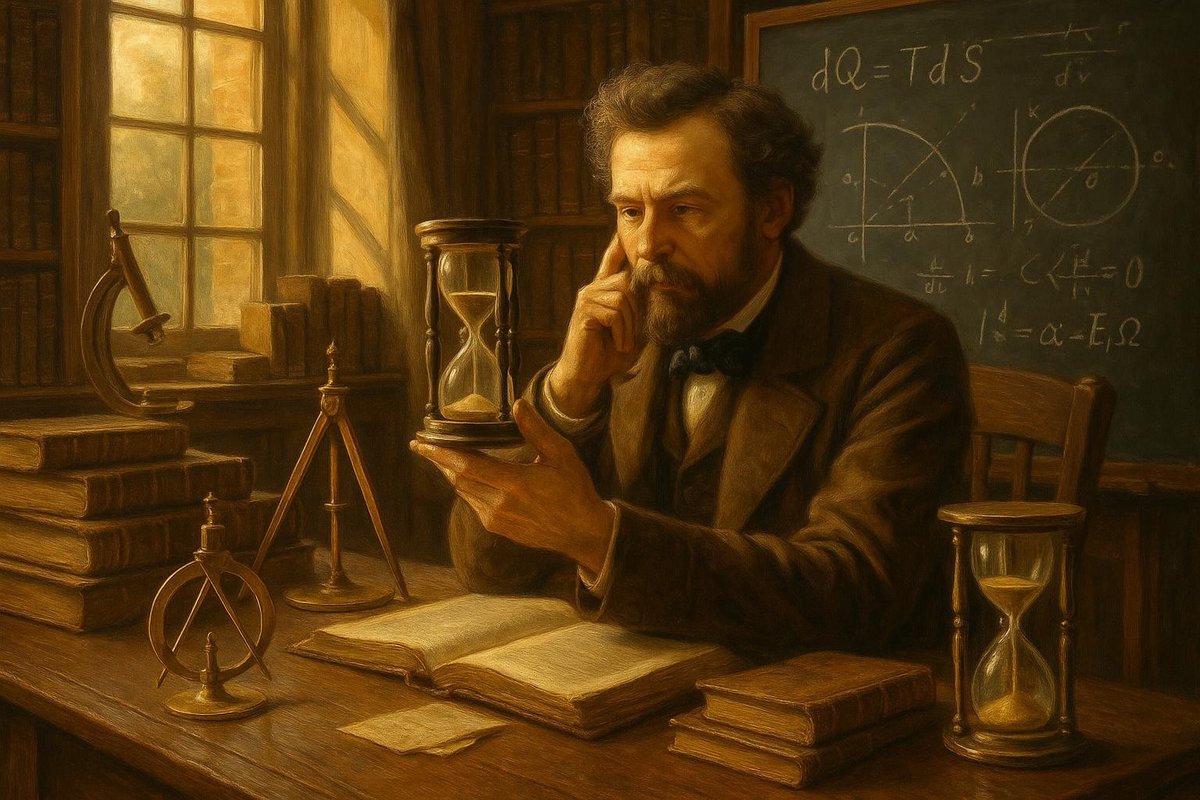
Questioning Order in a World of Chaos
Imagine a sandcastle built lovingly on a beach. Over time, the wind and waves erode its perfectly crafted turrets and walls. Yet, as the grains of sand scatter, they mimic a pattern of endless possibilities. This natural process exemplifies entropy—a concept in thermodynamics describing the tendency of systems to move towards disorder. But what does this tell us about our universe, and more profoundly, about ourselves?
Interestingly, this inclination towards disorder invites us to contemplate the very nature of existence. Most people see chaos as something to be feared, yet it is an intrinsic part of life. The Second Law of Thermodynamics tells us that the entropy of an isolated system always increases over time, leading us to question: Is order truly just a transient state?
Theoretical Breakthrough: From Classical to Modern Understanding
Before entropy became a cornerstone of thermodynamics, the scientific community grappled with understanding energy. Many scientists, like Rudolf Clausius in the 19th century, pondered how heat and work interact. It was Clausius who introduced entropy, describing it as energy dispersing in ways that make it unavailable for work.
- Clausius’s insight: “The energy of the universe is constant; the entropy of the universe tends to a maximum.” This realization reshaped how energy conservation and dispersion were perceived.
- Think of entropy as a river that cannot flow uphill; it naturally follows the path of least resistance.
This shift in understanding marked a pivotal moment in physics. As time goes on, entropy challenges us to rethink the balance between order and disorder, prompting philosophical inquiry into the nature of existence.
Supporting Evidence: Nature’s Relentless March
In everyday life, entropy is evident. From a melted ice cube to a decaying leaf, nature offers countless demonstrations. But what does this relentless march towards disorder mean for us? For scientists, it’s a reminder of energy’s limits and life’s impermanence.
- Entropy offers a lens to view the universe as ever-changing, leading us to find beauty in transformation.
- Consider how a cup of hot coffee cools over time—energy dissipates, and so does the potential to perform work.
These observations reinforce the importance of entropy in understanding not only physical processes but also life’s transient nature. As we reflect on these patterns, we gain insight into the balance of creation and decay, inviting humility and wonder into our perception of life.
Modern Relevance: Embracing the Entropic Universe
In today’s fast-paced world, entropy extends beyond physics, touching on the chaos of digital information and societal change. As technologies evolve, so does our grasp of energy and information flow, encapsulated in the concept of entropy.
- The internet, a vast repository of data, exemplifies entropy as information disseminates unpredictably.
- Businesses encounter entropy in market fluctuations, pushing for innovation amidst unpredictability.
Reflecting on entropy allows us to embrace unpredictability with grace. In accepting that disorder is natural, we find the courage to innovate and adapt. Recognizing entropy encourages a philosophical mindset, urging us to question, explore, and grow with the universe’s mysterious dance.
As we immerse ourselves in this philosophical exploration of entropy, we discover profound lessons about resilience, adaptability, and humility. Embracing chaos doesn’t mean surrendering to it; rather, it invites us to find meaning within it.
Fuel Someone Else’s Curiosity
If you found this exploration insightful, why not share it with others? Discuss these ideas with friends or colleagues, sparking a conversation about the philosophical implications of science. Understanding entropy can be a gateway to deeper reflections on life’s mysteries. Let’s continue to think, question, and wonder together.

Leave a Reply